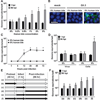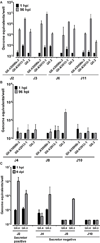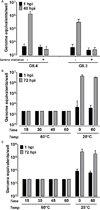Replication of human noroviruses in stem cell-derived human enteroids
- PMID: 27562956
- PMCID: PMC5305121
- DOI: 10.1126/science.aaf5211
Replication of human noroviruses in stem cell-derived human enteroids
Abstract
The major barrier to research and development of effective interventions for human noroviruses (HuNoVs) has been the lack of a robust and reproducible in vitro cultivation system. HuNoVs are the leading cause of gastroenteritis worldwide. We report the successful cultivation of multiple HuNoV strains in enterocytes in stem cell-derived, nontransformed human intestinal enteroid monolayer cultures. Bile, a critical factor of the intestinal milieu, is required for strain-dependent HuNoV replication. Lack of appropriate histoblood group antigen expression in intestinal cells restricts virus replication, and infectivity is abrogated by inactivation (e.g., irradiation, heating) and serum neutralization. This culture system recapitulates the human intestinal epithelium, permits human host-pathogen studies of previously noncultivatable pathogens, and allows the assessment of methods to prevent and treat HuNoV infections.
Copyright © 2016, American Association for the Advancement of Science.
Conflict of interest statement
The authors declare no conflicts of interest.
Figures





Comment in
-
COVID-19: organoids go viral.Nat Rev Mol Cell Biol. 2020 Jul;21(7):355-356. doi: 10.1038/s41580-020-0258-4. Nat Rev Mol Cell Biol. 2020. PMID: 32483314 Free PMC article.
References
Publication types
MeSH terms
Grants and funding
LinkOut - more resources
Full Text Sources
Other Literature Sources
Medical

